(Above) The Stitch and Chat group at Montreal Citadel knits hats and mittens, hanging them on Christmas trees along the street as gifts for those in need
Miriam stood outside the door of The Salvation Army’s Montreal Citadel and looked at the poster advertising the Stitch and Chat group. She hesitantly tried the door. To her surprise, it was opened for her by Micheline, who was waiting inside.
“Would you like to join the group?” Micheline asked. She took Miriam up to the large fellowship hall on the second floor. Happy chatter filled the room as women sat together at tables, working on a variety of projects. “Hello!” “Bonjour!” “Hola!” women called out as others entered. Miriam was given the same warm welcome that all of the women received.
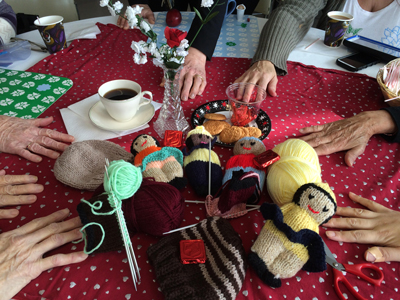 The group knits dolls to accompany medicine sent overseas
The group knits dolls to accompany medicine sent overseas
Needles clicked as others laboured over slippers for women living at L’Abri Women’s Shelter in the centre of town. A few worked on their own knitting projects, such as a baby blanket for a grandchild. One woman had brought in a dozen dishcloths for the corps kitchen. She knit them during the week from donated cotton.
Miriam informed us she was from the local Centre Local de Services Communautaires (CLSC), a community clinic that provides health and social services, run and maintained by the provincial government. Her responsibility was for seniors, and she was particularly concerned about those who were English and Spanish speaking. There were plenty of programs in French, but she feared this segment of the population wasn’t adequately served.
She came to visit The Salvation Army when she heard we were caring for seniors in the neighbourhood. She was impressed by Micheline’s warm welcome, and she felt the love from the moment she stepped in the door.
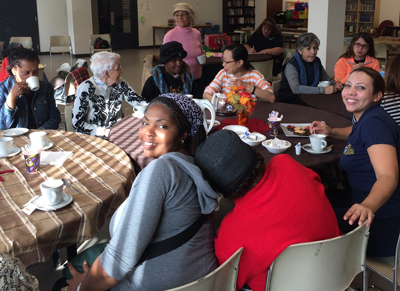 Finding friendship and support around a shared table
Finding friendship and support around a shared table
After the coffee, tea and treats were served, Louise raised a question and gave the women an opportunity to respond and share a little bit about their lives. For example: “What is your favourite season and why?”
This week, Louise’s questions were, “How long have you been coming to this group? Why did you come in the first place and why do you keep coming?”
Miriam had planned to leave before the coffee time, but could not resist the invitation to join us for this fellowship. She was intrigued to hear the answers to these questions.
Some women had been coming since we first started the program about four years ago. Others joined at various times since then. Almost every week, someone new shows up. Practically all of the women said they came because they saw the poster in the church window and wanted to know more, or a friend in the neighbourhood invited them to come. The most astonishing thing was that the women said it was a place where they felt loved and accepted. That is why they keep coming every week.
One woman shared how she started coming just after her mother died and she felt so bereft. The fellowship helped her cope with her grief and she found hope again. Another woman came at the end of her cancer treatments, and everyone celebrated that she had been cancer-free for four years. She could now do a walkathon in support of cancer research. The support of the women in this group boosted her courage when she feared the cancer might return.
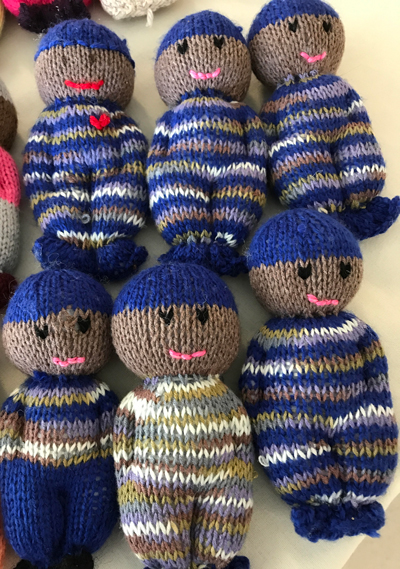 The finished dolls
The finished dolls
Then one day, Kathy, a member of the congregation, came to me and said, “I would like to see a group of women who could meet here and just knit or sew and chat together.”
I said, “Why not?” I asked her to prepare a poster, bring it to me and we would see what was possible.
A few days later, she came with her poster. Meanwhile, Louise readily agreed to help with this project. We put the poster in the window and the women began to come.
Some women in our congregation were experienced knitters and they taught anyone who wished to learn, starting with the little dolls to go to children overseas. Wool and needles came to us from all sorts of surprising sources.
As I left the Stitch and Chat group that Tuesday afternoon, Miriam’s words echoed in my head: “I felt the love the moment that I walked in here.” As icing on the cake, she remarked that in so many places in our city, she has found language is a barrier to communication. However, she noted that we have instead used it to enrich our relationships with one another. God’s love overcomes barriers and changes lives while we stitch and chat.
Colonel Eleanor Shepherd is a retired Salvation Army officer.
Photos: Colonel Eleanor Shepherd




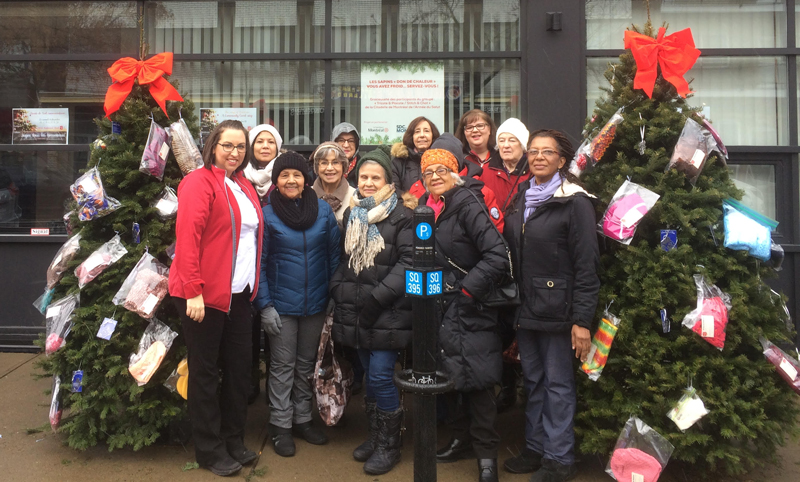


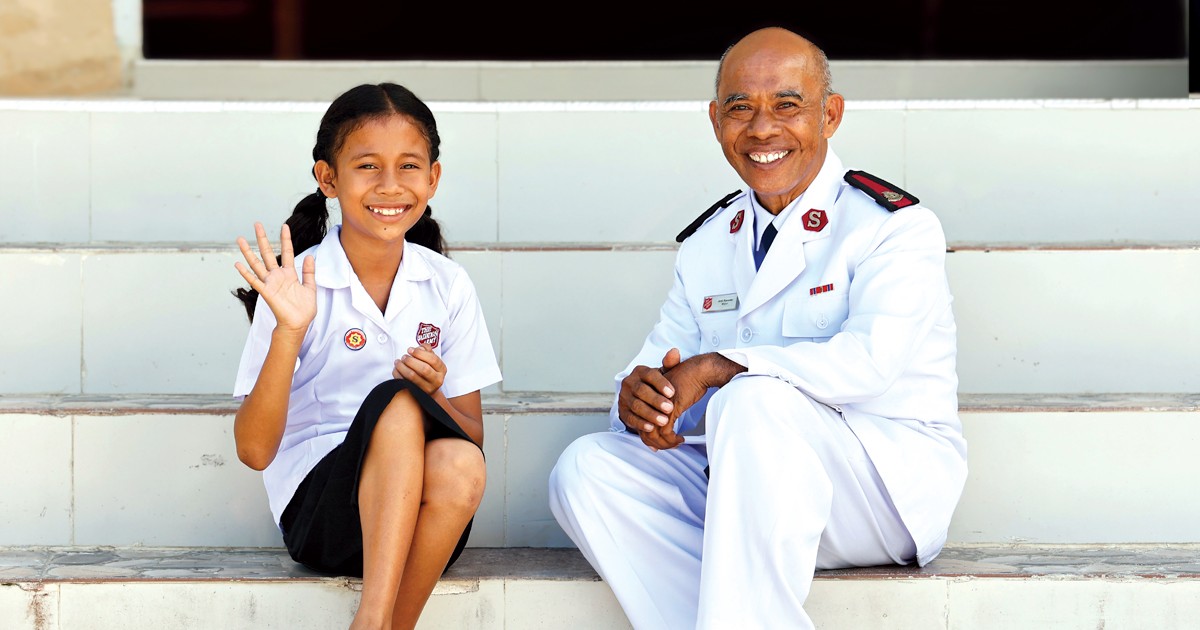


Comment
On Wednesday, May 13, 2020, Yvonne macgregor said:
On Tuesday, January 21, 2020, Jean St.Onge said:
Leave a Comment